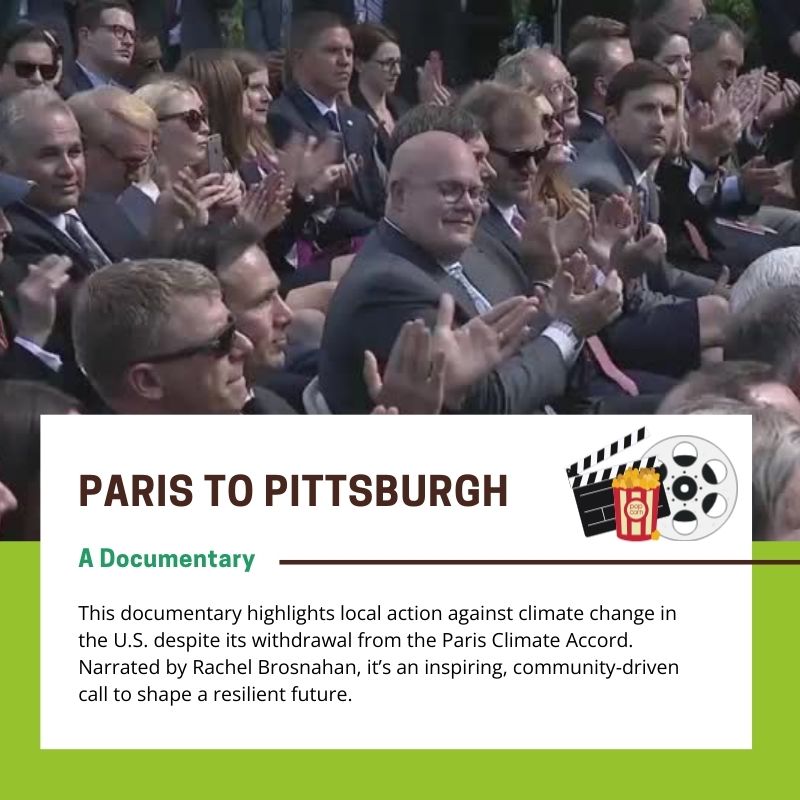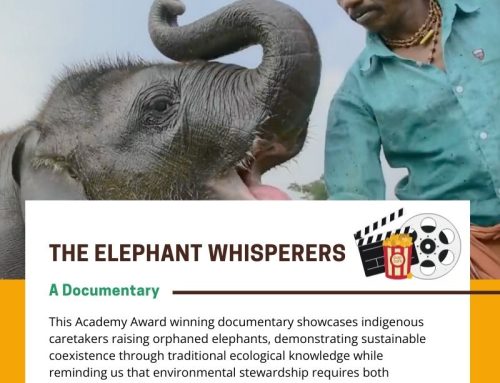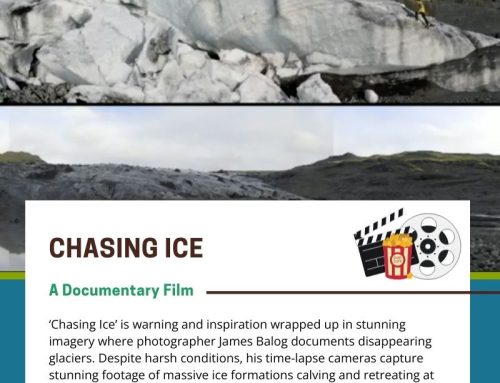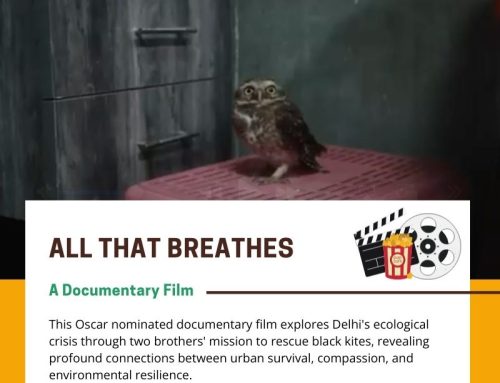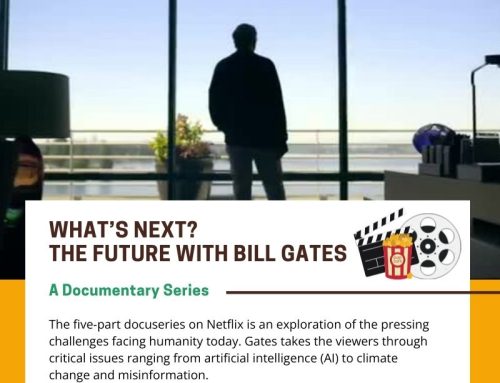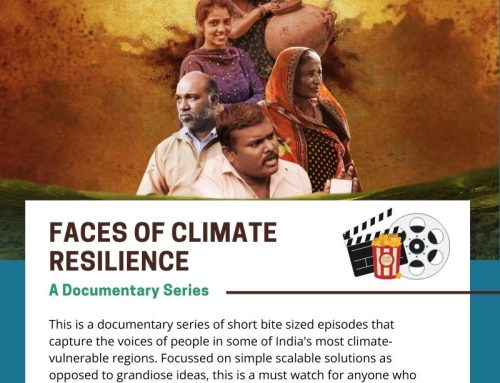Paris to Pittsburgh is a tale of worries and a tale of hope alike.
The title stems from Donald Trump’s infamous ‘I was elected to represent the citizens of Pittsburgh, not Paris’ from when he withdrew U.S. from the Paris Climate Accord. As if almost pointed at the quote and (now) the upcoming administration, the documentary tries to show its viewers the importance of local and community-based action in the face of national or federal inaction.
Directed by Sidney Beaumont and Michael Bonfiglio, this is a compelling documentary. It explores the fallout from the U.S. decision to withdraw from the Paris Climate Agreement and how communities across America are stepping up to combat climate change despite political inertia. With narration by Emmy and Golden Globe-winning actress Rachel Brosnahan, the documentary brings a heartfelt and personal touch to a global issue. While the film offers an inspiring narrative of resilience and innovation, it also has moments where its focus feels overly idealistic.
One of the documentary’s greatest strengths lies in its portrayal of grassroots efforts to mitigate climate change. It moves beyond the grim data and politics that often dominate these large-scale climate discussions, focusing instead on tangible solutions and human stories. For instance, it highlights a small-town mayor in Iowa who has transformed her community by adopting renewable energy sources. Her pride in her town’s accomplishments is palpable as she says, “We’re not just surviving—we’re thriving.” These moments provide a refreshing dose of optimism and demonstrate that meaningful change is possible, even at the local level.
The film’s geographic diversity is its strong and weak suite. From the bustling streets of New York City to the rural farmlands of the Midwest, the documentary underscores how communities across the country are innovating in their battle against climate change. The breadth of coverage makes the film feel inclusive and emphasises that climate action is not limited to certain regions or demographics. It is however completely U.S. centric which can feel alienating to viewers from other parts of the world.
Rachel Brosnahan’s narration is another standout element. Her voice is warm and engaging, striking a balance between urgency and hopefulness. She guides viewers through the narrative with sincerity and a sense of purpose, making the film’s complex subject matter more accessible. Brosnahan’s emotive delivery enhances the personal stories featured in the film, drawing viewers into the lives of those most affected by climate change.
While ‘Paris to Pittsburgh’ is undeniably inspiring, it occasionally oversimplifies the challenges of combating climate change. The film’s focus on local success stories sometimes glosses over the systemic barriers that make widespread change difficult. For example, while the documentary highlights communities transitioning to renewable energy, it does not adequately address the economic and political obstacles that prevent many others from doing the same. This omission risks painting an overly rosy picture of the fight against climate change.
Another criticism is its lack of attention to the voices of Indigenous and frontline communities, who are often disproportionately affected by environmental degradation. Although the film touches on economic and racial inequities, it misses an opportunity to delve deeper into the lived experiences of marginalized groups. This absence leaves a gap in an otherwise robust narrative.
Some viewers might find the documentary’s tone to be slightly preachy. The film is clearly designed to inspire action, but its messaging occasionally veers into the realm of moral superiority. While this might resonate with environmentally conscious audiences, it could alienate those who are sceptical or less engaged with the topic.
One of the documentary’s most striking themes is the idea that leadership on climate action can come from anywhere. This is best exemplified in its coverage of Pittsburgh, the city that serves as a central metaphor in the film. Pittsburgh’s decision to commit to the Paris Agreement goals despite federal inaction is a powerful symbol of local determination. As Pittsburgh’s mayor poignantly states, “We’re going to do this because it’s the right thing to do, not because someone in Washington tells us to.”
The documentary also highlights the economic benefits of renewable energy, dispelling the notion that environmental sustainability is at odds with economic growth. It features interviews with business leaders who are profiting from clean energy initiatives, reinforcing the message that a green economy is both viable and desirable.
In an era where the topic of climate change can be easily overwhelming, ‘Paris to Pittsburgh’ provides a much-needed reminder that individuals and communities have the power to make a difference. It succeeds in making a daunting issue feel personal and actionable, a rare feat in environmental storytelling.
If you are seeking inspiration or simply wanting to better understand the resilience of the human spirit in the face of climate challenges, this is a must-watch. It is a testament to the fact that while our leaders may falter, ordinary people can rise to extraordinary challenges. As one participant in the film aptly puts it, “The future isn’t written—it’s ours to shape.”
You can stream the documentary on Disney+Hotstar.

